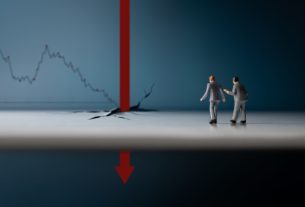|
Getting your Trinity Audio player ready...
|
Interviewer: Cindy Cohn
Agustina Del Campo is the Director at the Center for Studies on Freedom of Expression and Access to Information (CELE) at the University of Palermo in Buenos Aires, Argentina. She holds a law degree from Universidad Catolica Argentina and an LL.M. in International Legal Studies from American University Washington College of Law.
Agustina has extensive experience in human rights training, particularly as it relates to freedom of expression and the press in the Inter-American human rights system. She has taught and lectured in several Latin American countries and the U.S.
EFF’s Executive Director Cindy Cohn caught up with Agustina at RightsCon 2023 in Costa Rica. In this brief but powerful exchange Agustina discusses how, though free speech has a bad rap these days, it is inherent in any advocacy agenda aimed at challenging – and changing – the status quo and existing power dynamics.
Cindy Cohn: Would you introduce yourself?
Sure, I’m Agustina Del Campo and I direct the Center for Studies on Freedom of Expression and Access to Information (CELE) in Argentina.
Cohn: First, what does free speech mean to you?
Free speech means a lot of things to me, but it basically means the power to bring unpopular ideas to the mainstream. That is what free speech means to me. It’s the power of advocating for something.
Cohn: Wonderful. How do you think online speech should or shouldn’t be regulated?
Well, I think it should or shouldn’t be regulated in the same way that offline speech should or shouldn’t be regulated. The power of speech is basically not the power to share popular ideas, but the power to share unpopular ideas, and popular ideas are online and offline and they have an impact online and offline. We’ve been discussing the limits and the possibilities and the opportunities and the challenges for speech offline for a number of years, so I think in whatever we decide to do in online speech we should at least bear in mind the discussions that we had prior to getting to this new technology and new tools.
Cohn: I know you’ve told me in the past that you’re a feminist and, obviously you live in Argentina, so you come from the Global Majority. Often we are told that free speech is a white western concept—how do you react to that accusation?
It’s interesting, in a lot of countries the freedom of expression agenda has been somewhat lost. It’s an unpopular time for freedom of expression. A lot of that unpopularity may be due to this association precisely—the freedom of expression agenda as a white male, middle-aged kind of right—and there’s a lot of anger to this place that freedom of expression has. My immediate reaction is the fact that you can have an advocacy agenda for women, for abortion rights, for anything basically, the fact that you were able to bring vulnerable populations to the mainstream conversation, the fact that we are sensitive to gender, to pronouns, to indigenous populations, to children’s need—it’s a lot the product of people fighting for the possibilities of those groups and voices to be heard. It wasn’t long ago that in my country and in my region, Latin America, there was a very conservative regime in a lot of countries where a lot of these claims that today are mainstream and popular and shared were unspeakable. You could not raise them anywhere. It is freedom of expression that has facilitated and allowed those discussions to flourish to become what they are. The fact that a lot of those agendas, the feminist agenda, the most vulnerable populations’ agendas are now really established in a lot of countries and flourishing took a lot of fighting from freedom of expression advocates so that those voices could be heard. The fact that we’re winning doesn’t mean we’ll always be. And we need to protect the guarantees and rights that allowed us to get to where we are now.
Cohn: That is so perfect. I think I just want to stop there. I wish I could put that on posters.



